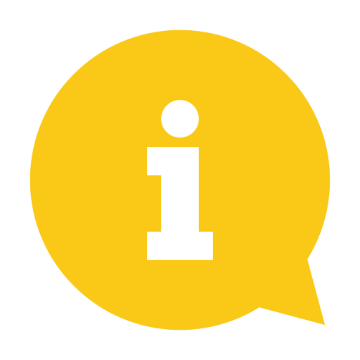You have no items in your shopping cart.

If you’re starting a new medication this article will tell you everything you need to know. Remember you’re not alone and our pharmacists want you to feel confident and secure. You can call us anytime.
Let's arm you with the knowledge you need to better manage your health. After all, it's not just about taking pills; it's about understanding them too.
Key Takeaways
- Pharmacists are extensively trained healthcare professionals who provide valuable advice and insights about prescriptions.
- Talking to your pharmacist can provide important insights and guidance, including reviewing medication guides, side effects, and interactions.
- Different types of medications, such as prescription, over-the-counter, combination products, and herbal supplements, have unique uses and potential side effects.
- It is important to be aware of potential side effects and interactions, and to work closely with your doctor and pharmacist to monitor and adjust your treatment plan.
What is a Pharmacist?
A pharmacist is a healthcare professional who's extensively trained in understanding the uses, compositions, and effects of drugs.
We’re not just there to dispense your medication; we can provide valuable advice and insights about your prescriptions, making them a crucial part of your healthcare team.
You can often get advice on medication that’s just as good as seeing your doctor, often without an appointment or fee.
Why Should You Talk to Your Pharmacist About Your Medication?
Before starting any new medication, it's crucial to have a discussion with your pharmacist, a medical expert who can provide you with important insights and guidance.
Pharmacists play a vital role in ensuring your medication works effectively and safely. We can review your medication guide, side effects, and interactions with other drugs or food.
We can give advice about medication maintenance, such as the best time to take your medicine, what to do if you miss a dose, and how to store it properly.
Plus, pharmacists can answer any questions you might've about your new medication. So, don't hesitate to talk to your pharmacist.
It's a significant step towards understanding your treatment and achieving better health outcomes.
Types of Medications
Prescription medications require a doctor's approval in order to purchase. Then there are over-the-counter (OTC) medications that you can buy without a prescription.
There are also combination products, like Paracetamol with Codeine, and various herbal or natural supplements, each with their unique uses and potential side effects.
Prescription Medications
When starting a new medication, it's essential to understand that prescription medications come in various types, each with their own specific uses and effects. Depending on your medical condition, your doctor may prescribe antibiotics, antivirals, antifungals, or other specific drugs.
It's crucial to take them as instructed to avoid medication errors and potential drug interactions.
Don't hesitate to ask your pharmacist for advice if you're uncertain about anything. We can clarify dosages, explain how to take the medication, and warn you about possible side effects. Their knowledge is a valuable resource and can significantly improve your experience.
Over-the-Counter (OTC) Medications
Switching gears to over-the-counter (OTC) medications, you'll find these drugs don't require a prescription and are often used for self-treatment.
OTC drugs, also known as counter medicines, are widely available and can be effective for treating a variety of health conditions.
However, it's crucial to understand that they’re not without risks. Just like prescription drugs, OTC medications can cause side effects, interactions with other drugs, or even an allergic reaction.
If you're unsure about a particular medication, seek advice from a health professional before starting a new OTC drug. It's important to read the instructions carefully and monitor your symptoms.
If your symptoms persist or worsen, it's time to consult with a healthcare provider.
Combination Products
In your journey with medications, you'll likely encounter combination products that pack multiple active ingredients into one pill. These prescription medicines, available at pharmacies, provide a combination of medicines designed to treat several symptoms or conditions at once.
However, they also require a greater level of caution. Interactions between the combined substances can have unexpected effects on your health. Always follow the dosing instructions carefully and be aware of potential side effects. If you're taking other medications, make sure your healthcare professional knows to avoid any harmful interactions.
Herbal/Natural Supplements
Before diving into your daily routine, it's crucial that you're aware of the potential implications of herbal and natural supplements on your overall health and any existing medication plan.
As an alternative medication, herbal/natural supplements can interact with prescribed medicines. It's important to understand these interactions might lead to unexpected outcomes.
- Herbal products aren't always risk-free. They contain active substances that can interfere with your medicines.
- Dietary supplements may not be standardised, leading to varying effects.
- The safety of herbal supplements isn't guaranteed due to limited regulation.
- Your healthcare provider can provide guidance on safe and effective use.
Potential Side Effects and Interactions
It's crucial to understand that every medication has potential side effects and interactions that you should be aware of.
You may find that your medication interacts with other drugs, supplements, or even certain foods, which can affect how it works.
Always work closely with your doctor and pharmacist to monitor these aspects and adjust your treatment plan if necessary.
Common Side Effects of Different Medications
How often have you wondered about the potential side effects and interactions of your new medication? Understanding the common side effects of different medications is crucial to avoid adverse drug events or a bad drug reaction. Here are some things you should know:
- Many prescription drugs require you to take the medicine with food to minimise side effects.
- Certain medications, when taken together, can lead to harmful interactions.
- Common side effects can range from mild (like sleepiness or dry mouth) to severe (such as breathing difficulties or chest pain).
- Keep your pharmacist informed about all the medication you're taking, including over-the-counter drugs.
Never hesitate to ask your pharmacist about potential side effects and interactions. They're there to help ensure your safety.
Potential Drug Interactions with Other Medications, Supplements, Foods, etc.
Understanding potential drug interactions with other medications, supplements, or foods is essential when you're starting a new medication. When a drug interacts with another substance, it can alter the way the drug works. This could increase your risk for side effects or reduce the medication's effectiveness.
Always inform your pharmacist about any other medications or supplements you're taking. Even seemingly harmless substances like grapefruit can have potential drug interactions. For instance, it can increase the concentration of certain drugs in your system, leading to an overdose. So, it's crucial to also consider the food you consume.
Careful management and open communication with your healthcare provider can help prevent unwanted interactions and ensure your treatment is safe and effective.
Working with Your Doctor and Pharmacist to Adjust Treatment if Necessary
When you're starting a new medication, you'll need to work closely with your doctor and pharmacist to monitor and adjust your treatment as necessary, especially in response to potential side effects and interactions. Your physician and pharmacy team are there to guide you through this process, ensuring your safety and wellbeing.
Here are a few tips:
- Keep a medication wallet card, it's a handy way to track your medicine schedule.
- Don't hesitate to ask about alternative medicine if side effects become too bothersome.
- Be open about any new symptoms or changes in your health.
- Always inform your healthcare team of any other medications or supplements you're taking.
Special Considerations for Specific Populations
When starting a new medication, it's essential to remember that different populations may require special considerations.
For instance, children must be educated on the correct way to take their medication.
Elderly patients may require detailed monitoring for potential side effects and interactions.
With this in mind, let's discuss these specific needs to ensure everyone is safe and properly informed.
Children and Taking Medicine Properly
As a parent, you've got numerous responsibilities, and ensuring your child takes their new medication correctly is a pivotal one. When dealing with prescriptions for children, special attention is needed.
- Grasp the importance of accurate dosing. Overdosing or underdosing can have serious consequences. Use the measuring devices that come with liquid medicines, not household spoons.
- Keep a list of medicines your child is taking, including over-the-counter products, to prevent dangerous interactions.
- Make sure your child understands why they're taking the medicine, to encourage compliance.
- Store all medicines out of children's reach to prevent accidental ingestion.
Elderly Patients and Careful Monitoring of Side Effects & Interactions
You should know, elderly patients often require special considerations when starting a new medication, with side effects and interactions requiring careful monitoring.
As our bodies age, they metabolise drugs differently, making elderly patients more susceptible to adverse reactions. Therefore, it's crucial to observe any changes in behaviour, appetite, or overall health.
Pharmacists play a vital role in this process, providing education about potential side effects & interactions. They'll also guide you on how to manage them effectively.
Moreover, pharmacists ensure that the new medication won't conflict with any existing prescriptions.
Conclusion
Remember, starting a new medication can be a bit daunting. But, don't worry, your pharmacist is there to guide you.
Understand the type, potential side effects, and interactions of your medication.
If you're part of a specific population, there may be special considerations.
Always ask questions if you're unsure.
Your health is a priority, and your pharmacist is your partner in ensuring you're on the best path towards wellness.

This information is intended solely for New Zealand residents and is of a general nature only. No person should act in reliance on any statement contained in the information provided, but at all times should obtain specific advice from a health professional.
